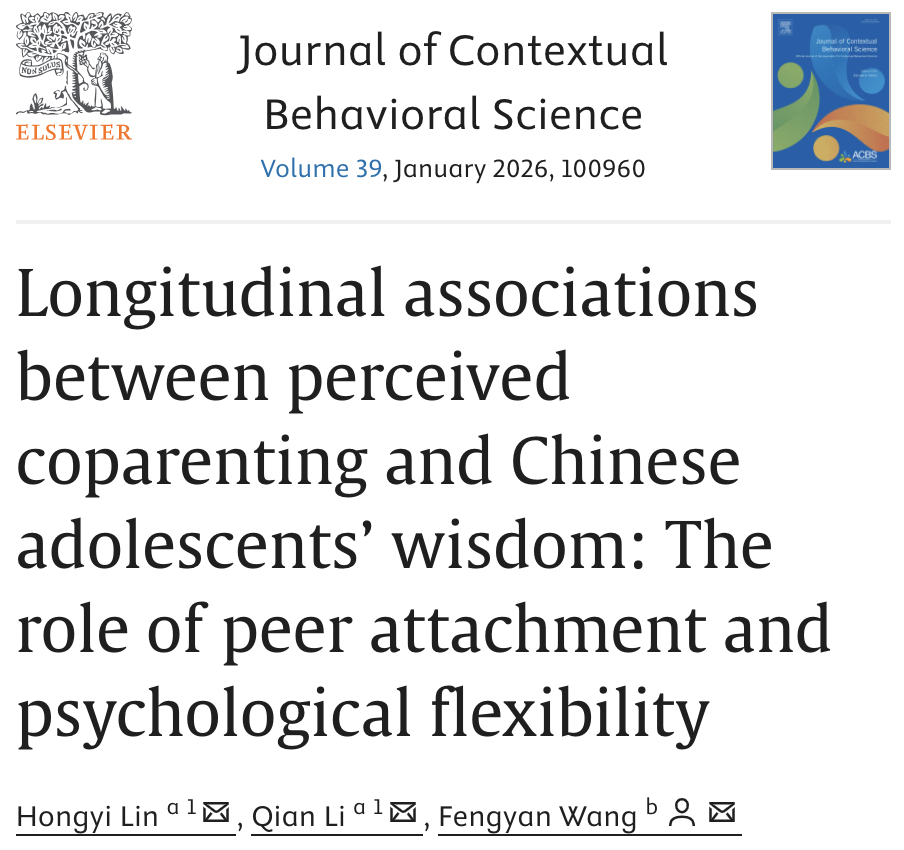Journal of Contextual Behavioral Science (JCBS)
Volume 39, January 2026
Authors
Hongyi Lin, Qian Li, Fengyan Wang
Key Findings
- Perceived coparenting significantly and positively predicted adolescents' wisdom.
- Peer attachment was key mediators between perceived coparenting and wisdom.
- Psychological flexibility was key mediators between perceived coparenting and wisdom.
Abstract
Wisdom refers to a global psychological quality acquired through experience and practice, grounded in intelligence and knowledge, that integrates virtue (manifesting prosocial in virtuous motivation, means, and results toward the common good) and wit (synthesizing practical knowledge, intelligence, and strategic thinking for effective problem-solving). Despite the proliferation of approaches to foster human wisdom, a range of family-related measures (e.g., coparenting, which refers to the collaborative activities of all adults responsible for raising children) are still lacking. Drawing on family systems theory and the theory of wisdom that integrates virtue and wit, this study examined the longitudinal relationships between perceived coparenting and adolescent wisdom, as well as the serial mediating roles of peer attachment and psychological flexibility, across four waves (N = 510, 51.8 % boys; 3-month intervals). As expected, we found that both paternal and maternal coparenting behaviors were significantly directly related to adolescent wisdom 9 months later. Additionally, perceived coparenting was related to adolescent wisdom through the mediating effects of peer attachment and psychological flexibility and the sequential mediating effects of peer attachment and psychological flexibility. These findings expand our understanding of the theoretical mechanism underlying the relationship between perceived coparenting and adolescent wisdom. Moreover, future wisdom education or psychological counseling should consider the importance of peer factors and psychological flexibility.
